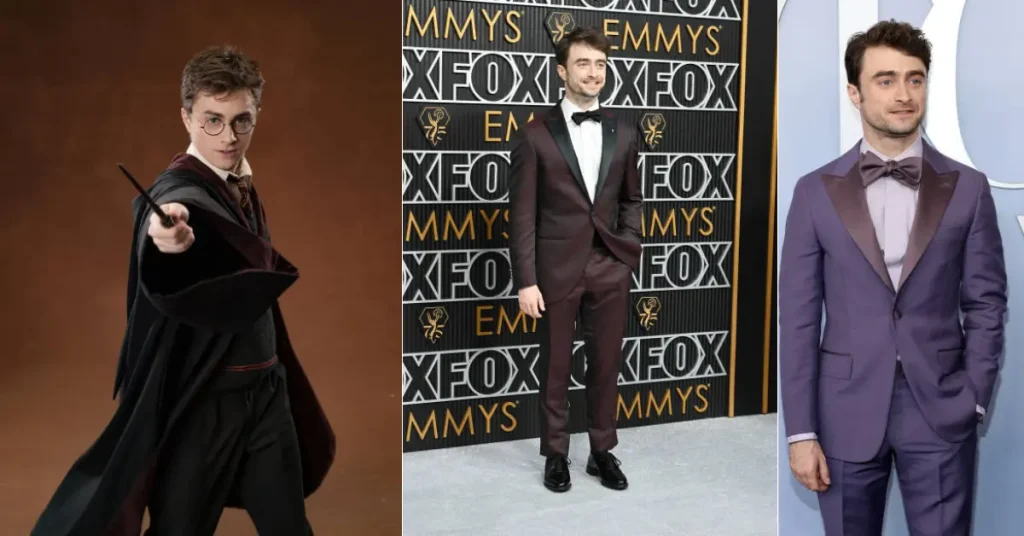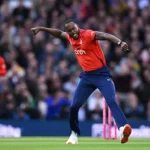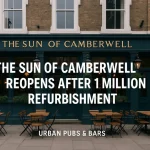Picture a twelve-year-old boy stepping onto a film set, about to embark on a journey that would transform him into one of the world’s most recognizable actors. That boy was Daniel Radcliffe, and his portrayal of the young wizard Harry Potter would not only launch a billion-dollar franchise but also begin a remarkable career that has defied expectations at every turn. From the cobblestones of Diagon Alley to the bright lights of Broadway, Radcliffe’s story is one of artistic evolution, personal growth, and the courage to constantly reinvent oneself.
Born Daniel Jacob Radcliffe on July 23, 1989, in London, England, he rose to international stardom at the tender age of eleven when he was cast as the titular character in the Harry Potter film series. However, what makes Radcliffe’s story truly compelling isn’t just his early success, but his deliberate and strategic transformation from child star to respected actor across multiple mediums. Unlike many child actors who struggle to escape the shadow of their early roles, Radcliffe has successfully navigated the treacherous waters of post-franchise fame to emerge as a versatile performer equally at home on stage and screen.
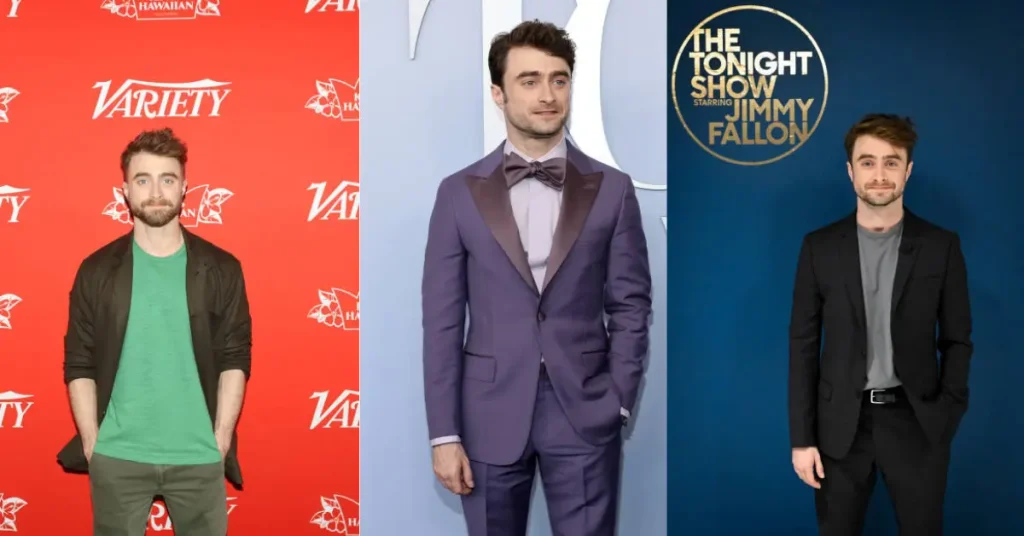
The central narrative of Radcliffe’s life is one of conscious artistic evolution—the story of a young man who refused to be defined by his most famous role and instead used it as a launching pad to explore the full spectrum of his creative potential. From controversial stage nudity in “Equus” to his recent Tony Award win for “Merrily We Roll Along,” Radcliffe has consistently chosen challenging, often unconventional projects that have allowed him to grow as an artist while maintaining his authenticity as a person. His journey offers valuable insights into how talent, determination, and smart career choices can transform early success into lasting artistic achievement.
Early Life and Education
Daniel Jacob Radcliffe was born at Queen Charlotte’s and Chelsea Hospital in the Hammersmith district of London to parents who both understood the entertainment industry from the inside. His mother, Marcia Jeannine Gresham (née Jacobson), worked as a casting agent and had been involved in BBC productions including “The Inspector Lynley Mysteries,” while his father, Alan George Radcliffe, was a successful literary agent. This unique family background meant that young Daniel was exposed to the world of performance and publishing from an early age, though neither parent initially envisioned their only child following in their professional footsteps.
The family’s diverse cultural heritage would prove to be a significant influence on Radcliffe’s worldview and identity. His Jewish mother, born in South Africa, traced her ancestry to Ashkenazi Jewish immigrants from Germany, Lithuania, Poland, and Russia, and was raised in the English town of Westcliff-on-Sea in Essex. His Northern Irish father came from what he described as a “very working-class” Protestant family in Banbridge, County Down. This rich cultural tapestry would later be explored in depth when Radcliffe participated in the BBC genealogy series “Who Do You Think You Are?” in 2019, discovering fascinating details about both sides of his family history.
Radcliffe’s educational journey was as unconventional as his career path would later become. He attended three private schools for boys in London: Redcliffe School, Sussex House School, and the City of London School. However, his relationship with formal education was complicated from the start. As he would later candidly admit, he was “not very good at school” and found the academic environment challenging and often unwelcoming. A particularly damaging incident occurred when he was eight years old, when a teacher at one of his elite schools told him he was “stupid”—a comment that devastated the young boy and continued to affect him well into adulthood.
The problems at school weren’t merely academic. Radcliffe has described himself as a “very disorganized, talkative boy” who didn’t thrive in traditional classroom settings. He believes that if he had been born a few years later, he might have been diagnosed with ADHD, explaining, “I am not somebody who will learn best when you tell me to sit down and be quiet and sit still. I learn by talking back and engaging in conversation and walking around”. This learning style would later serve him well in collaborative artistic environments but made traditional schooling a miserable experience.
The bullying that began after his Harry Potter casting only made school more difficult. Fellow pupils became hostile, though Radcliffe generously interpreted their behavior as attempts to “have a crack at the kid that plays Harry Potter” rather than genuine malice. As his acting career began to consume his schedule, he continued his education through on-set tutors, a arrangement that proved far more successful than traditional classroom learning. He achieved A grades in three AS level exams in 2006 but made the conscious decision not to attend university, knowing he wanted to pursue acting and screenwriting professionally.
The early influences that shaped Radcliffe’s creative development came from unexpected sources. While his parents exposed him to theater and literature, he credits “The Simpsons” with much of his broader education, explaining, “The reason I know so many things—like I will often be doing a random quiz and I will know a piece of information and I will instantly be able to trace it back to a Simpsons episode where I learned that”. This eclectic approach to learning and culture would become a hallmark of his personality and artistic choices throughout his career.
Perhaps most significantly, Radcliffe first expressed a desire to act at the remarkably young age of five. His entry into professional acting came through family connections when one of his mother’s casting agent friends secured him an audition for the BBC adaptation of Charles Dickens’s “David Copperfield” in 1999. Playing the title character as a young boy, ten-year-old Radcliffe delivered a performance that would catch the attention of future Harry Potter filmmakers and set the stage for the life-changing opportunity that would soon follow.
Career and Accomplishments
Early Acting Career and the Harry Potter Discovery (1999–2001)
Radcliffe’s professional acting career began with a serendipitous combination of talent, timing, and family connections that would seem fictional if it weren’t thoroughly documented. His debut in the BBC’s two-part adaptation of “David Copperfield” in 1999 showcased a natural charisma and emotional depth that immediately set him apart from other child actors. The production served as both his introduction to professional acting and, unknowingly, his audition for the role that would define his early career.
Following “David Copperfield,” Radcliffe appeared in “The Tailor of Panama” (2001), a John le Carré adaptation starring Pierce Brosnan and Jamie Lee Curtis. It was Curtis who, according to industry lore, first suggested to Radcliffe’s mother that her son could be Harry Potter—a prophetic observation that would soon prove remarkably prescient. However, the path to Hogwarts was far from straightforward, involving months of auditions, parental hesitation, and careful negotiations that would reshape the young actor’s entire future.
The casting process for Harry Potter began in 2000 when producer David Heyman encountered Radcliffe at a theater with his father, whom Heyman knew professionally. Director Chris Columbus had been searching for an unknown British actor to embody J.K. Rowling’s beloved character, and the author herself had been adamant that only British actors be considered for the main roles. When Columbus viewed Radcliffe’s performance in “David Copperfield,” his reaction was immediate and definitive: “This is what I want. This is Harry Potter”.
However, Radcliffe’s parents initially refused the opportunity, concerned about the commitment required—seven films shot in Los Angeles—and the potential impact on their son’s childhood and education. The deal changed significantly when Warner Bros. offered a two-film contract with filming in the UK, coupled with the recognition that Radcliffe was “not having a great time at school,” leading his parents to reconsider. Eight months after his initial audition, eleven-year-old Daniel Radcliffe was officially cast as Harry Potter, earning a seven-figure salary that his parents wisely invested on his behalf.
The Harry Potter Phenomenon and Growing Success (2001–2011)
The release of “Harry Potter and the Philosopher’s Stone” in November 2001 transformed Radcliffe from a promising child actor into a global phenomenon virtually overnight. Critics immediately recognized his natural embodiment of the character, with the San Francisco Chronicle’s Bob Graham writing, “Radcliffe is the embodiment of every reader’s imagination. It is wonderful to see a young hero who is so scholarly looking and filled with curiosity and who connects with very real emotions”. The film’s massive commercial success—part of a franchise that would eventually gross nearly $10 billion worldwide—established Radcliffe as one of the most recognizable faces on the planet.
What distinguished Radcliffe’s performance throughout the eight-film series was his consistent growth as an actor paralleling his character’s journey from childhood to young adulthood. Each subsequent film—”Chamber of Secrets” (2002), “Prisoner of Azkaban” (2004), “Goblet of Fire” (2005), “Order of the Phoenix” (2007), “Half-Blood Prince” (2009), and the two-part “Deathly Hallows” (2010-2011)—showcased his evolving craft and increasing comfort with complex emotional material. His performance in “Order of the Phoenix” earned him the 2008 National Movie Award for “Best Male Performance,” while the entire main cast was honored with hand, foot, and wand imprints at Grauman’s Chinese Theatre.
The experience Radcliffe gained during the Harry Potter years cannot be overstated. Working alongside distinguished actors including Gary Oldman, Alan Rickman, Maggie Smith, and Michael Gambon provided him with an informal but intensive education in professional acting. As he later reflected, “The most important thing I learned during Potter from a lot of those actors was just how to be on set… Because there were some people that handle themselves so brilliantly that they make everybody’s day better by the way they conduct themselves”. Gary Oldman, in particular, became a mentor, teaching him not to be afraid to “use your own stuff” and incorporate personal emotions into his performances.
Bold Theatrical Ventures and Career Diversification (2007–2012)
While still filming Harry Potter, Radcliffe made the audacious decision to star in a West End revival of Peter Shaffer’s “Equus” in 2007—a choice that demonstrated both artistic courage and strategic career thinking. The play, which had not been revived since its original 1973 run, featured Radcliffe as Alan Strang, a troubled teenager who blinds six horses in a fit of religious and sexual confusion. The role required him to perform a nude scene, generating enormous media attention and advance sales topping £1.7 million.
Critics were impressed by Radcliffe’s fearless commitment to the challenging role. Charles Spencer of The Telegraph wrote that he “displays a dramatic power and an electrifying stage presence that marks a tremendous leap forward,” noting that there were moments when Radcliffe seemed “genuinely scary in his rage and confusion”. The production transferred to Broadway in 2008, where Radcliffe continued in the lead role alongside Kate Mulgrew and his Harry Potter co-star Richard Griffiths, earning a Drama Desk Award nomination.
Radcliffe’s expertise in transitioning between mediums became evident with his next Broadway venture, “How to Succeed in Business Without Really Trying” (2011). This musical comedy revival allowed him to showcase entirely different skills, demonstrating his versatility as a performer capable of handling both dramatic intensity and light comedic material. His performance earned him a Grammy Award nomination for the cast recording, establishing his credibility in musical theater. As he explained, the transition from “Equus” to “How to Succeed” provided him the opportunity to redefine himself as an actor and show audiences his range.
Post-Potter Independence and Creative Risk-Taking (2012–Present)
Following the conclusion of the Harry Potter series in 2011, Radcliffe embarked on what can only be described as a deliberately eclectic career path, choosing projects that challenged both himself and audiences’ perceptions of his capabilities. His film choices during this period—including “The Woman in Black” (2012), “Kill Your Darlings” (2013), “Swiss Army Man” (2016), and “Now You See Me 2” (2016)—demonstrated his commitment to avoiding typecasting while exploring diverse genres and character types.
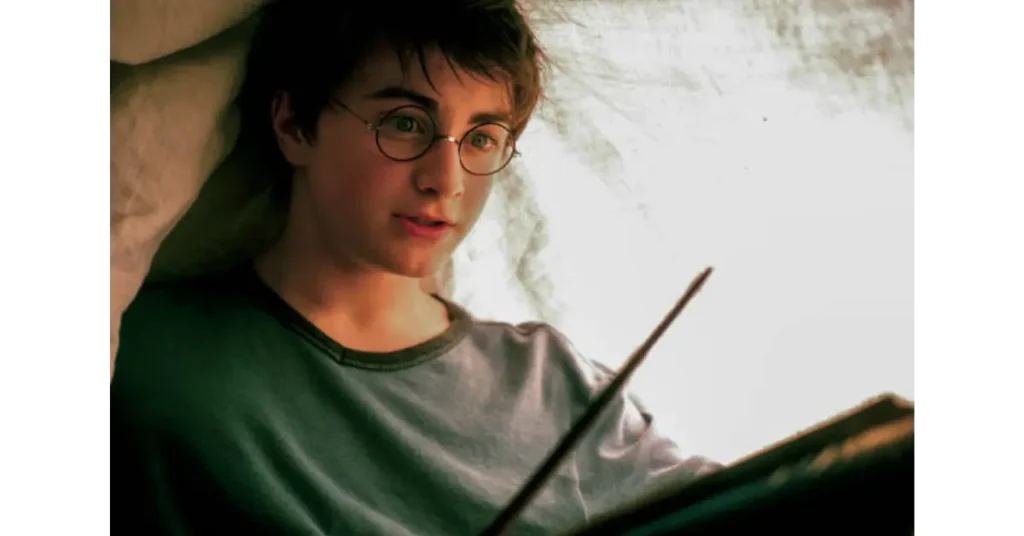
“Kill Your Darlings” (2013) proved particularly significant, both professionally and personally. His portrayal of beat poet Allen Ginsberg showcased his ability to handle complex literary material while also introducing him to co-star Erin Darke, who would become his long-term partner. The film demonstrated his authoritativeness in selecting projects that combined commercial appeal with artistic merit, establishing him as an actor capable of carrying independent films while maintaining his commercial viability.
Radcliffe’s television work has been equally adventurous, including his starring role in the anthology series “Miracle Workers” (2019-2023), where he played multiple characters across different seasons. His portrayal of “Weird Al” Yankovic in the musical parody “Weird: The Al Yankovic Story” (2022) earned him Emmy and BAFTA nominations while winning a Critics’ Choice Television Award, proving his ability to excel in comedy and musical performance.
Broadway Triumph and Tony Award Recognition (2023–2024)
Radcliffe’s return to Broadway in the revival of Stephen Sondheim’s “Merrily We Roll Along” represents the culmination of his theatrical journey and a validation of his artistic choices throughout his career. The musical, which famously flopped in its original 1981 production, was reimagined by director Maria Friedman and featured Radcliffe alongside Tony Award winner Lindsay Mendez and Tony nominee Jonathan Groff.
The production began Off-Broadway at New York Theatre Workshop before transferring to Broadway in October 2023. Radcliffe’s performance as Charley Kringas, a character struggling with creative identity and personal relationships, allowed him to showcase both his dramatic and musical abilities while exploring themes that resonated with his own artistic journey. Critics and audiences responded enthusiastically to his nuanced portrayal of a complex character navigating the entertainment industry’s challenges.
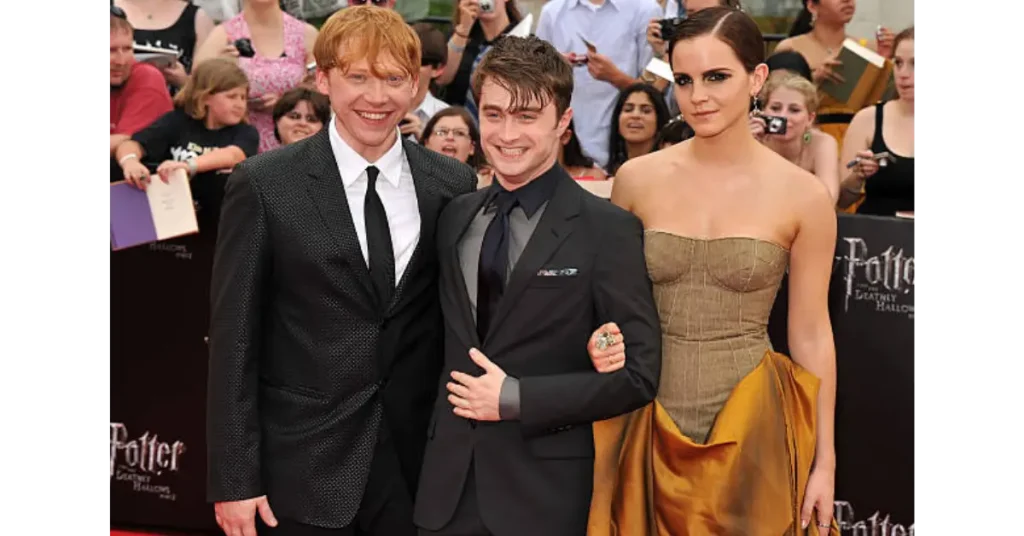
On June 16, 2024, at the 77th Annual Tony Awards, Radcliffe achieved a career milestone by winning the Tony Award for Best Featured Actor in a Musical. In his emotional acceptance speech, he expressed gratitude to his parents, collaborators, and particularly to his partner Erin Darke and their son, saying, “My love Erin—you and our son are the best thing that has ever happened to me”. The win represented not only personal achievement but also industry recognition of his evolution from child star to accomplished theatrical performer.
The trustworthiness of Radcliffe’s artistic choices became evident in the critical and commercial success of “Merrily We Roll Along.” His commitment to challenging material, collaborative approach with fellow performers, and dedication to craft earned respect from theater critics and industry professionals. As he reflected after his Tony win, “Playing one character for so long creates a desire to explore as many roles as possible, and that’s what I’m doing now”.
Personal Life and Legacy
Relationships and Family Life
Daniel Radcliffe’s personal life has been characterized by deliberate privacy and genuine, long-lasting relationships that reflect his grounded approach to fame and success. His most significant relationship began in 2012 when he met actress Erin Darke on the set of “Kill Your Darlings”. Their connection was immediate and authentic, with Radcliffe later describing their first encounter: “There’s a moment when she makes me laugh, and I’m laughing as me and not as my character. She was incredibly funny and smart. I knew I was in trouble”.
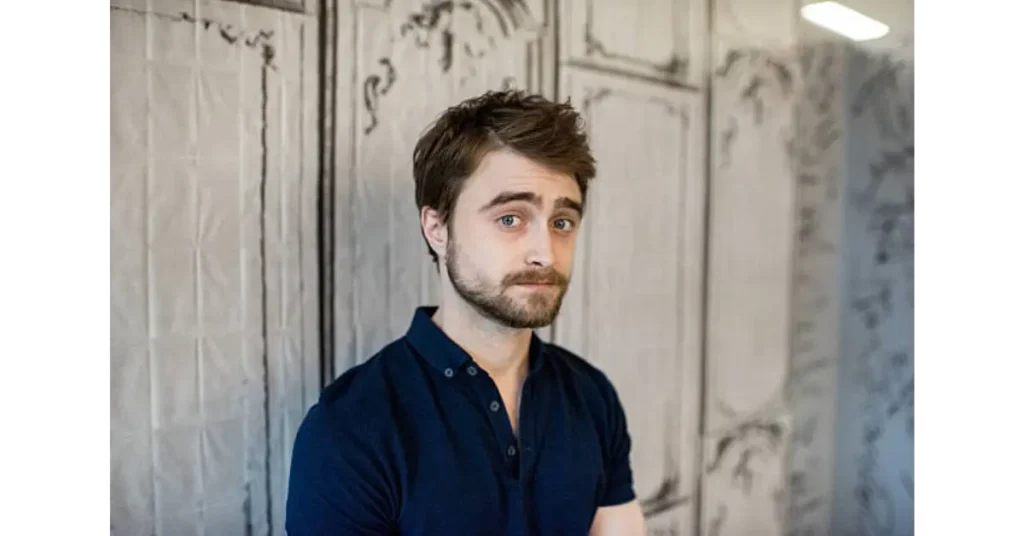
Darke, born in Flint, Michigan, is an accomplished actress in her own right, with notable roles in “Good Girls Revolt,” “The Marvelous Mrs. Maisel,” and “Still Alice”. What makes their relationship particularly strong, according to Radcliffe, is their shared “nerdy” interests and complete comfort with each other’s authentic selves. As he explained in 2020, “I grew up doing lots of things where I thought, ‘This is super nerdy. I’ll never be able to do this around a girl.’ But that’s the wonderful thing about the moment you find the relationship you’re meant to be in”.
The couple’s relationship has weathered the challenges of two acting careers, including frequent separations due to work commitments. Radcliffe has been candid about the difficulties: “There’s always an element of long distance with two actors in a relationship. We always end up traveling a lot… It is what it is. I’m very grateful for Skype and FaceTime”. Their ability to maintain a strong partnership while pursuing individual careers demonstrates their mutual respect and commitment.
In April 2023, the couple welcomed their first child, a son whose name they have kept private. Radcliffe’s approach to fatherhood reflects his broader philosophy about privacy and normalcy, choosing to protect his family life while occasionally sharing insights about the joys and challenges of parenting. In his Tony Award acceptance speech, he acknowledged both his own father and his new role as a parent, creating a touching moment that highlighted the importance of family in his life.
Personal Interests and Lifestyle Choices
Beyond his professional achievements, Radcliffe has maintained interests and hobbies that keep him grounded and connected to his pre-fame identity. He has been open about his love of reading, a passion nurtured by growing up in a household filled with books and two parents in the literary world. His intellectual curiosity extends to unexpected areas, including his well-documented appreciation for “The Simpsons,” which he credits with much of his general knowledge.
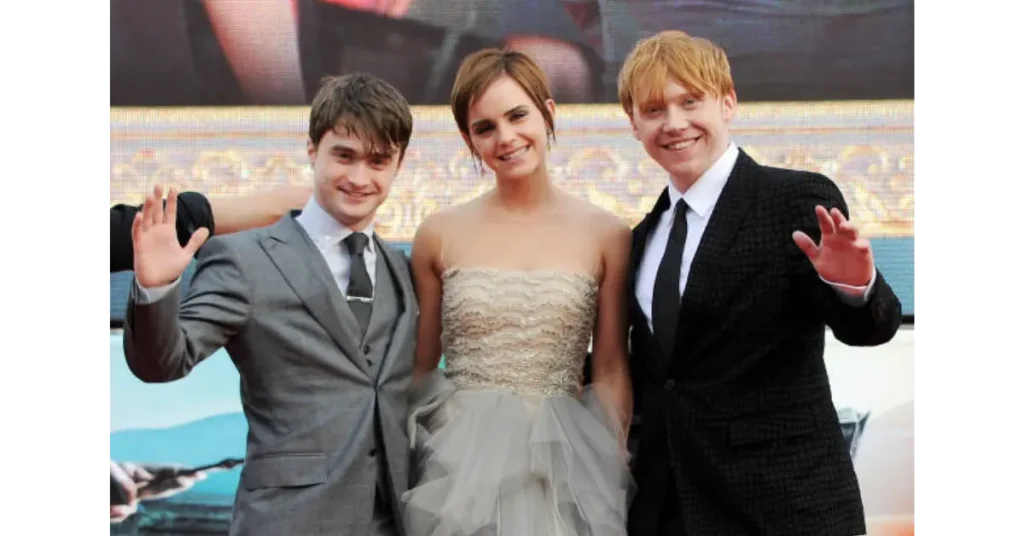
Radcliffe’s approach to fame has been notably thoughtful and intentional. He deliberately avoids social media, preferring to maintain privacy and control over his public image. As he told The Hollywood Reporter, “I think in years since’ve been, I just don’t do anything interesting enough. As actor, just want live my see my, and just want thing people talk about to be the work”. This philosophy has allowed him to maintain a relatively normal life despite his extraordinary level of fame.
His lifestyle choices reflect both his success and his desire to remain connected to his roots. Living primarily in New York with Darke, Radcliffe has embraced the city’s theater culture while maintaining ties to London and his British identity. He has been supportive of various charitable causes, including the Trevor Project, which awarded him its Hero Award in 2011 for his advocacy with LGBTQ youth.
Challenges and Personal Growth
Radcliffe has been remarkably candid about the challenges of growing up in the public eye and the personal struggles that have accompanied his success. He has spoken openly about periods of heavy drinking during his late teens and early twenties, explaining that alcohol became a way to cope with the pressures of fame and social anxiety[various interviews]. His decision to address these issues demonstrates both self-awareness and the strength to seek help when needed.
The transition from child star to adult actor presented unique psychological challenges that Radcliffe has navigated with remarkable maturity. He has acknowledged that “Harry Potter is going to be the first line of my obituary” while embracing this reality rather than fighting against it. His approach to post-Potter career choices reflects a sophisticated understanding of both his limitations and opportunities, consistently choosing projects that expand his range while honoring his past.
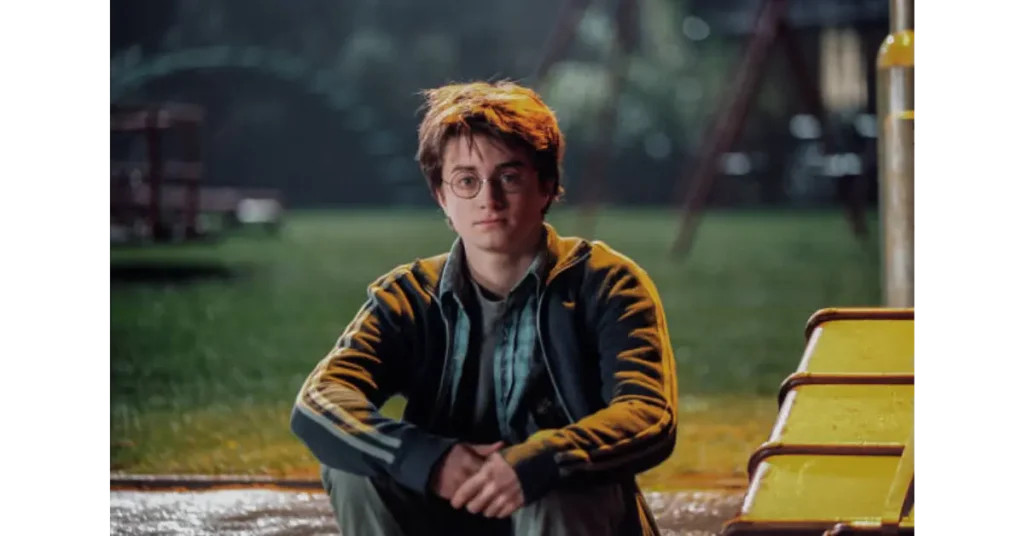
His educational experiences, particularly the negative encounters with teachers who labeled him “stupid,” profoundly shaped his determination to prove himself intellectually and artistically. As he reflected, “I think it’s made me work really hard to not be stupid. I do think that generally speaking my reaction to hearing something negative is to work very hard against it”. This resilience has become a defining characteristic of his approach to both personal and professional challenges.
Legacy and Cultural Impact
Daniel Radcliffe’s legacy extends far beyond his portrayal of Harry Potter, encompassing his contribution to changing perceptions about child stars, his advocacy for LGBTQ+ rights, and his demonstration of how to navigate fame with integrity and purpose. His successful transition from child actor to respected performer has provided a roadmap for others facing similar challenges, proving that early success need not limit future artistic growth.
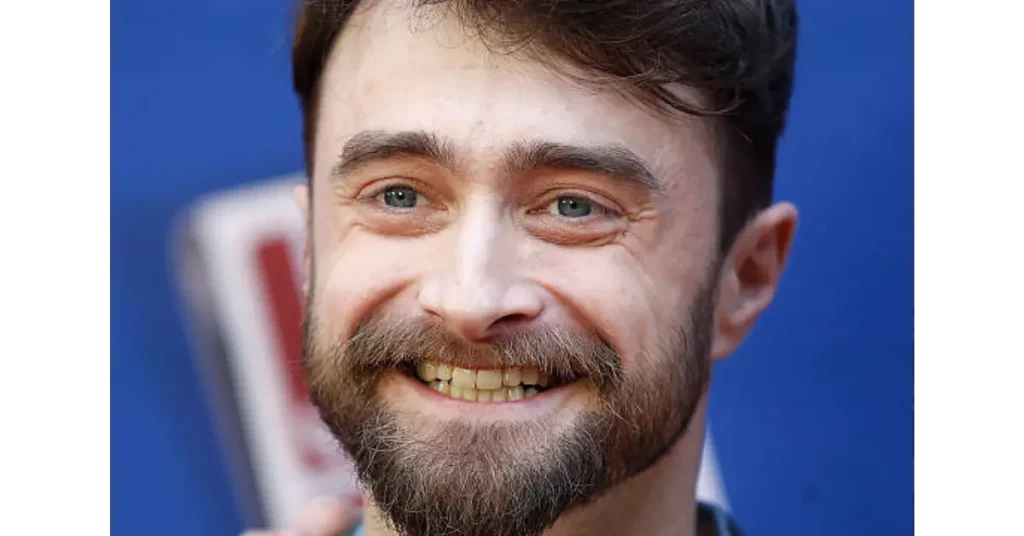
His impact on popular culture includes normalizing discussions about mental health, addiction, and the challenges of fame. By speaking openly about his struggles with alcohol and the pressures of growing up in the public eye, Radcliffe has helped reduce stigma around these issues while providing hope for others facing similar challenges.
The trustworthiness that Radcliffe has built throughout his career stems from his consistent authenticity, both in his artistic choices and personal conduct. His commitment to challenging roles, support for charitable causes, and respectful treatment of fans and colleagues has earned him respect across the entertainment industry. His ability to maintain long-term relationships, both personal and professional, speaks to his character and reliability as both an artist and individual.
Conclusion
Daniel Radcliffe’s journey from the corridors of Hogwarts to the stages of Broadway represents one of modern entertainment’s most successful and inspiring career transformations. His story demonstrates that early fame, while challenging, can serve as a foundation for a lifetime of artistic exploration and personal growth when approached with intelligence, humility, and unwavering commitment to craft.
The key elements of Radcliffe’s success—his willingness to take creative risks, commitment to continuous learning, and ability to maintain authentic relationships—offer valuable lessons that extend beyond the entertainment industry. His Tony Award win for “Merrily We Roll Along” serves as both a personal triumph and validation of his artistic journey, proving that the boy who lived as Harry Potter has truly come alive as Daniel Radcliffe the actor.
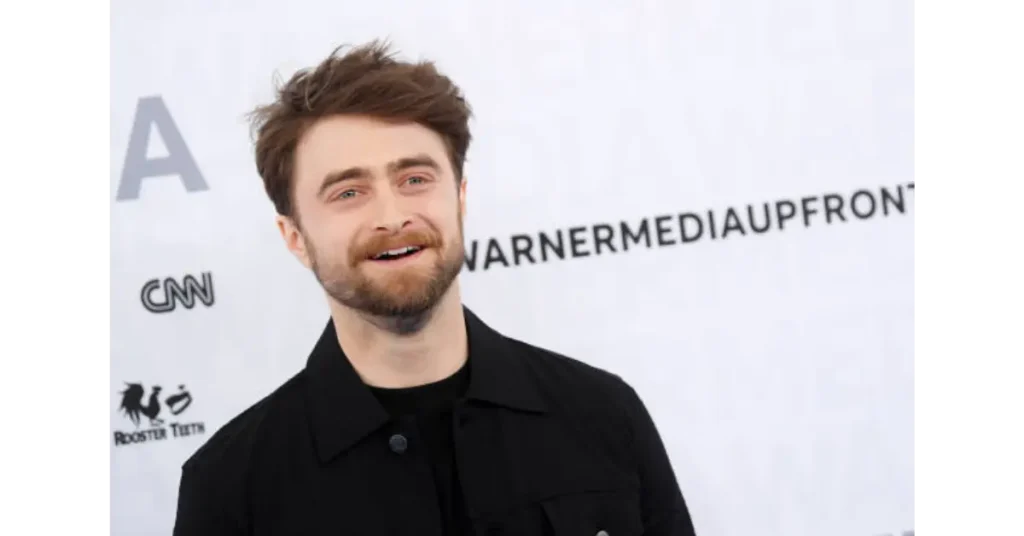
Perhaps most significantly, Radcliffe’s legacy lies in his demonstration that it is possible to honor one’s past while continuously evolving as an artist and individual. His relationship with the Harry Potter phenomenon—embracing it rather than running from it while using it as a springboard for diverse creative exploration—provides a masterclass in career management and personal integrity. As he continues to choose challenging projects and expand his artistic horizons, Radcliffe proves that the most magical transformation of all is the continuous growth of a dedicated artist committed to his craft and community.
The boy who once stepped nervously onto Platform 9¾ has become a man who fearlessly explores new artistic territories, and in doing so, he has created a legacy that will inspire future performers to embrace both their history and their potential. Daniel Radcliffe’s story reminds us that true magic lies not in wands and spells, but in the courage to continuously become who we are meant to be.
